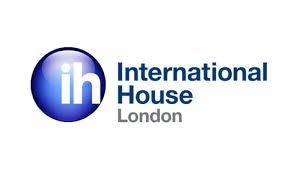
Effective Procurement Planning and Tender Management
Course ID: 2508110101196EGI
Course Dates : 11/08/25 Course Duration : 5 Studying Day/s Course Location: London, UK
Language: Bilingual
Course Category: Professional and CPD Training Programs
Course Subcategories: Leadership and Management Excellence
Course Certified By: * Projacs Academy
* Professional Training and CPD Programs
Certification Will Be Issued From :
KSA
Course Fees: £4,838.34
Vat Not Included in the price. VAT may vary depending on the country where the course or workshop is held.
Click to Pay
Date has passed please contact us Sales@e-s-hub.com
Course Information
Introduction
Procurement planning and tender management are pivotal functions in any organization, influencing cost efficiency, operational effectiveness, and strategic alignment. These processes ensure that organizations acquire goods and services in a manner that supports their goals while adhering to ethical, legal, and financial standards. In an era where supply chains face unprecedented disruptions and competition for resources intensifies, mastering procurement practices has become indispensable. This course delves into the intricacies of procurement planning and tender management, equipping participants with the tools and frameworks needed to navigate this complex domain.
The procurement landscape is fraught with challenges, including fluctuating market conditions, evolving regulatory requirements, and the need for sustainable sourcing practices. A notable gap exists between theoretical knowledge and practical application, leaving many professionals ill-prepared to address real-world scenarios. For instance, a case study from a multinational corporation revealed that inefficiencies in tender evaluation led to a 15% budget overrun on a critical infrastructure project. By addressing such gaps, this course bridges theory and practice, empowering participants to make informed decisions that align with organizational objectives.
Mastering procurement planning and tender management offers significant benefits for both individuals and organizations. Professionals who excel in these areas often enjoy enhanced career prospects, as they contribute directly to cost savings, risk mitigation, and value creation. Organizations, on the other hand, benefit from streamlined operations, improved supplier relationships, and compliance with industry standards. Drawing on established frameworks such as Porter’s Five Forces and the Supply Chain Operations Reference (SCOR) model, this course provides a robust foundation for understanding procurement dynamics.
Industry trends underscore the growing importance of digital transformation in procurement. Technologies like artificial intelligence (AI), blockchain, and data analytics are revolutionizing how organizations manage tenders and supplier relationships. For example, a leading retail chain implemented AI-driven procurement software, reducing cycle times by 30% and improving accuracy in supplier selection. By incorporating insights into these innovations, the course ensures participants remain at the forefront of industry advancements.
Real-world examples further illustrate the practical applications of effective procurement planning. Consider the case of a healthcare provider that adopted strategic sourcing practices to secure critical medical supplies during a global pandemic. By leveraging competitive bidding and long-term contracts, the organization not only ensured continuity of care but also achieved substantial cost savings. Such stories highlight the transformative potential of well-executed procurement strategies.
This course is designed to equip participants with the skills and knowledge necessary to excel in procurement planning and tender management. Whether you are a seasoned professional seeking to refine your expertise or a newcomer eager to understand the fundamentals, this program offers valuable insights and actionable strategies. Through a blend of theoretical instruction, hands-on exercises, and case studies, participants will emerge prepared to tackle the challenges of modern procurement with confidence and competence.
Objectives
By attending this course, participants will be able to:
Analyze procurement needs and develop comprehensive procurement plans aligned with organizational goals.
Evaluate tender documents and specifications to ensure clarity, fairness, and compliance with legal requirements.
Design and implement effective supplier evaluation and selection processes using qualitative and quantitative criteria.
Apply negotiation techniques to achieve favorable terms and conditions while maintaining strong supplier relationships.
Implement risk management strategies to mitigate potential disruptions in the procurement process.
Utilize digital tools and technologies to enhance efficiency and transparency in tender management.
Assess the impact of sustainability and ethical considerations on procurement decisions and practices.
Who Should Attend?
This course is ideal for:
Procurement officers, managers, and directors seeking to enhance their strategic capabilities.
Project managers responsible for overseeing procurement activities within their projects.
Supply chain professionals aiming to deepen their understanding of tender management.
Public sector employees involved in government procurement and contract administration.
Consultants and advisors specializing in procurement optimization and process improvement.
Training Method
• Pre-assessment
• Live group instruction
• Use of real-world examples, case studies and exercises
• Interactive participation and discussion
• Power point presentation, LCD and flip chart
• Group activities and tests
• Each participant receives a 7” Tablet containing a copy of the presentation, slides and handouts
• Post-assessment
Program Support
This program is supported by:
* Interactive discussions
* Role-play
* Case studies and highlight the techniques available to the participants.
Daily Agenda
The course agenda will be as follows:
• Technical Session 08.30-10.00 am
• Coffee Break 10.00-10.15 am
• Technical Session 10.15-12.15 noon
• Coffee Break 12.15-12.45 pm
• Technical Session 12.45-02.30 pm
• Course Ends 02.30 pm
Course Outlines
Foundations of Procurement Planning
Overview of procurement planning principles and frameworks.
Understanding organizational needs and aligning procurement strategies.
Introduction to procurement policies, regulations, and compliance requirements.
Case study: Developing a procurement plan for a mid-sized organization.
Day 2:
Tender Documentation and Evaluation
Crafting clear and concise tender documents and specifications.
Legal and ethical considerations in tender management.
Techniques for evaluating bids and selecting suppliers.
Group exercise: Analyzing sample tender submissions.
Day 3:
Supplier Relationship Management
Strategies for building and maintaining strong supplier relationships.
Tools for assessing supplier performance and reliability.
Negotiation skills for achieving win-win outcomes.
Role-play activity: Simulating a supplier negotiation scenario.
Day 4:
Risk Management and Digital Transformation
Identifying and mitigating risks in the procurement process.
Leveraging technology for efficient tender management.
Overview of AI, blockchain, and data analytics in procurement.
Workshop: Exploring procurement software solutions.
Day 5:
Sustainability and Strategic Sourcing
Incorporating sustainability into procurement decisions.
Best practices for strategic sourcing and category management.
Measuring the success of procurement initiatives.
Final project: Presenting a comprehensive procurement strategy.



















































